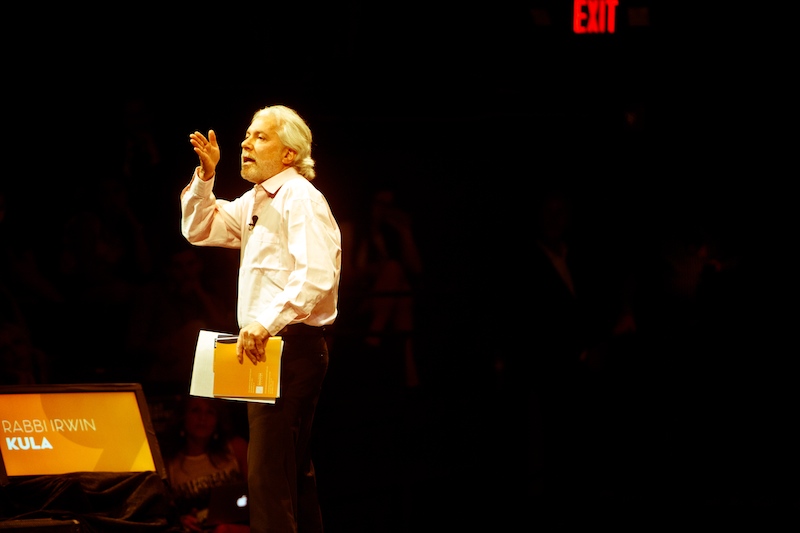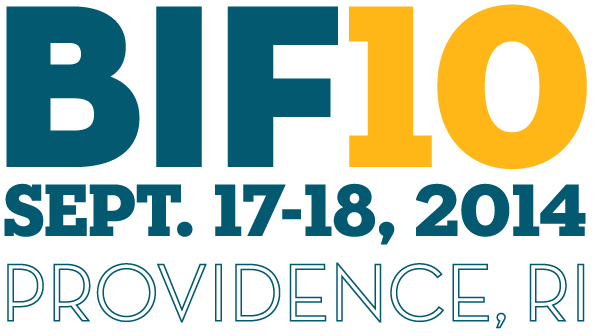

This is the second of a 10-article series of conversations with transformational leaders who will be storytellers at the BIF10 Collaborative Innovation Summit in Providence, RI, on Sept. 17-18.
This is part of a series of conversations with transformation leaders who will be storytellers at the BIF10 Collaborative Innovation Summit in Providence, RI, on Sept. 17-18.
Irwin Kula is an eighth-generation rabbi known for his fearless attitude about change — a rare quality among religious leaders who tend to adhere closely to tradition.
Kula, president of the National Jewish Center for Learning and Leadership (CLAL) in New York and the author of Yearnings: Embracing the Sacred Messiness of Life, has dedicated himself to opening up the wisdom of his 3,500-year-old faith to be in conversation with the world.
Kula preaches the “highest possible institutional barriers between church and state,” with the “lowest possible communication barriers.” He welcomes intermarriage and interfaith dialogue. He recognizes God not as a “Seeing Eye,” but in “experiences of love, caring, and connection.”
Many consider Kula progressive; others, disruptive. But Kula maintains that institutionalized disruption is essential to adaptation and growth.
+++
Rabbi Kula looks like the wise man of children’s books. He has a handsome widow’s peak, and speaks with homiletic pauses and animated hands. When asked about how his beliefs developed, he answers in stories.
At 14, Kula was thrown out of the private parochial school he attended for challenging the Torah. “I would ask a class of 25 students questions which were probably a touch ‘teenagerish’,” he recalls. “I’d ask, ‘You don’t really believe this — God splitting seas? Come on, this is not what this is actually saying’.”
This rebellious streak would come to define his practice.
The problem with most religious leadership, Kula claims, is that its mission is to convert the non-affiliated. “Religion is not about creed, dogma, or tribe,” he counters. “We need to stop judging our success by membership dues — this isn’t about how many hits. First and foremost, religion is a toolbox designed to help human beings flourish.”
Kula claims that he finds himself often at odds with the concept of “God” as commonly invoked in the American public arena. To him, this is the God of touchdowns and wars, an intervening God who “casts out” unless one “buys in.” “No religious or political system has a hold on being moral,” Kula says. “Systems are only as good as their people.”
For most of his rabbinic appointment, Kula kept these views to himself. Only after the September 11 attacks did he begin to more openly preach what he himself practiced.
“I was very unnerved, knowing the religious impulse compelled that,” Kula says. After the tragedy, he shut down his teaching for three months to reevaluate his role as a spiritual leader. When he returned to the synagogue, he had made the decision “never to teach Judaism again simply to affirm the group’s identity.”
+++
In 2013, Irwin Kula recounted the narrative of his spiritual conversion to a packed theatre of global business leaders at the Collaborative Innovation Summit, an event hosted annually by the nonprofit Business Innovation Factory (BIF) in Providence, RI. On stage, the rabbi made an ambitious appeal to his audience, whom he knew to be composed of astute tinkerers and serial entrepreneurs: He asked them to join him in his mission to innovate religion.
Kula is a fervent believer in accessing insight beyond the religious tradition. “It’s really important to speak to non-incumbents,” he maintains. “The less you speak exclusively to your own ‘users,’ the better shot you have of keeping your own practices from becoming incredibly distorted.” His CLAL runs a program called Rabbis Without Borders, dedicated to fostering open dialogue across cultural and religious barriers.
Stories of innovation often feature “two kids in a garage.” Kula’s goal has been to tell an innovation story from the cathedral. “Religion’s just a technology,” his BIF talk began. “How the hardware of humanity gets used will depend on the software.”
His talk covered how the rapid advancements of the digital infrastructure age demand that we broaden our ethical horizons: What are the new crimes? In this new order, who is included and what are their rights? As we redefine morality, the need to innovate faith becomes especially pressing.
“The most interesting businesses ask ‘impact on society’ questions, which are more complex than ‘killer app success’ questions,” Kula reflects in hindsight. “At BIF, I asked, ‘What would happen if we applied innovation theory to religion, to compress the resources it takes to create good people?’”
Kula looks forward to returning for BIF10 in September.
“If a homily is 15 minutes in church, it’s 18 minutes at BIF,” he says. “As conferences go, BIF embodies total equality between the storytellers and their audience. In many ways, it’s the best of what a spiritual community is — we’ve got to bottle that.”
The BIF Collaborative Innovation Summit combines 30 brilliant storytellers with more than 400 innovation junkies in a two-day storytelling jam, featuring tales of personal discovery and transformation that spark real connection and “random collisions of unusual suspects.”
Saul Kaplan is the author of The Business Model Innovation Factory. He is the founder and chief catalyst of the Business Innovation Factory (BIF) in Providence and blogs regularly at It’s Saul Connected. Follow him on Twitter at @skap5. Nicha Ratana is a senior pursuing a degree in English Nonfiction Writing at Brown University and an intern at The Business Innovation Factory. Follow her on Twitter at @nicharatana.
More Must-Reads from TIME
- Donald Trump Is TIME's 2024 Person of the Year
- Why We Chose Trump as Person of the Year
- Is Intermittent Fasting Good or Bad for You?
- The 100 Must-Read Books of 2024
- The 20 Best Christmas TV Episodes
- Column: If Optimism Feels Ridiculous Now, Try Hope
- The Future of Climate Action Is Trade Policy
- Merle Bombardieri Is Helping People Make the Baby Decision
Contact us at letters@time.com